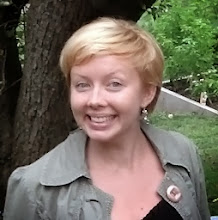
I wake up around sunrise. My first goal is to get to the well first. During the dry season, the well water becomes extremely murky approximately an hour after sunrise and is almost dry about an hour later. I only need 2 buckets, one for bathing and one for drinking, cooking and cleaning. On laundry days I fetch a third bucket. During the rainy season, I can sleep in because the buckets placed strategically under the gutters of my gazebo catch the rain run-off.
After filtering my drinking water, I boil some water with lemon grass and cook my breakfast. I eat oatmeal with re-constituted powdered milk and a sliced banana. Oatmeal is not sold in Kaboli, but I can find it in Tchamba, 40 km away. I stock up once a month. Nescafe or Lipton tea, which is cheaper but not always available, provides my daily caffeine fix.
Most mornings I'll go for a run on the dirt road behind my house that goes to Balanka. Sometimes I'm too lazy though and I read the latest American or British magazine that I am lucky enough to get my hands on.
Around 8am, it is time to get out of the house and perform my morning greetings. I usually begin this ritual by having a second breakfast of kom (a patty of fermented corn meal) and fried fish, which is served by Peace Corps counterpart, Foumilayo. She makes the best sauce. We chat about work or village gossip. Then I head to the small market in the center of town to buy supplies for lunch and practice my Ana (the local language) with all the vendors : Kabo ! Edjié ! Did you sleep well? Very well. How are the people at your house? They are there and well. And the children? They are there and well. And the work? It's going. May God be with us today! Amen! Send my greetings to your people. They will understand.
If have no other meetings in town, I go back to my house, study, work on the computer, and have lunch. While I'm doing my dishes, the kids are usually on their way back to school. They check if I have any empty tuna cans, which they use to make toys. Most days I do not, and they just like to say hi. I ask them how school is going, to which they always reply “très bien”—very good. After any afternoon meetings, it is time to buy my cat some fish and perform afternoon greetings with the same market vendors. But instead of Edjié (Good Morning), I begin with Aléni (Good Evening).
The greeting is key to maintaining your network in Togolese society. Even if have no work-related reason to visit colleagues at a particular microfinance institution or NGO, I like to stop by once a week or once every two weeks just to say hi and see what's up. Thanks to the miracle of telecommunications, aquaintences will often call me just to say and hang-up after an eight-second conversation.
Every other day, I visit my fou fou lady, Da Da Adissetou. Fou fou is yams pounded into a sticky mass. You eat it by clumping balls of it between your fingers and then dunking it into a bowl of sauce. But when fresh yams are out of season (from May to August), the alternative is pâtt, a thick corn meal porridge eaten in the same manner as fou fou. I enjoy fou fou as it vaguely reminds me of mashed potatoes, but I can only tolerate so much pâtt. But even if I am not eating, I am required to stop by and greet Adissetou as she considers herself my grandmother away from home. Nevertheless, she always complements my outfit and tells me that I am beautiful. Then some days her sister is selling wagash (cheese made by the Foulani tribe)—a nice bonus.
My evenings are quiet. I usually have a light dinner, study French or for the GMATs. Then I brush my teeth and read myself to sleep around 9pm.
My days aren't always so uniform. For instance, I am looking forward to hosting an evening radio program at the end of the month. The weekends are the best in Kaboli : I go to the market on Saturday afternoon. Sundays, I go to church in the morning and then drink tchouk (the local brew) and eat grilled pork with some friends under a grove of mango trees.

No comments:
Post a Comment